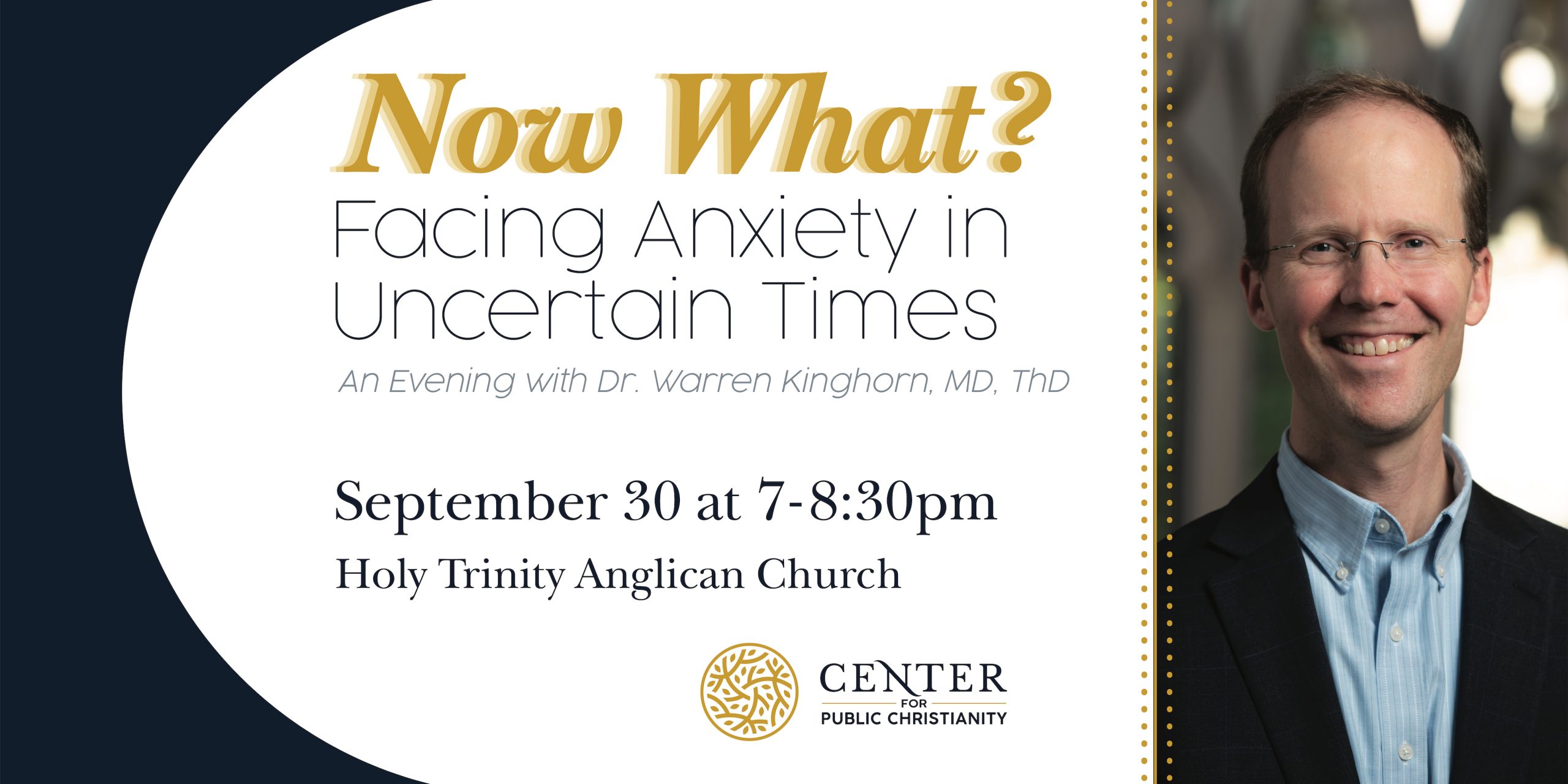
A Public Forum
The challenges and uncertainties of the past 18 months cannot be underestimated. We’ve adjusted to new rhythms and ways of living life. The new normal, we call it. Yet, it’s taken an emotional toll on most of us – and on those we know and love. Maybe a little more anxious? A perception of not measuring up? More frustrated? Feeling like you’ve lost control?
We invite you to hear from leading psychiatrist and theologian Dr. Warren Kinghorn who will caringly explore the pandemic’s impact on our well-being through the lens of his medical practice and faith. He’ll help us see the world and our lives from within the Christian tradition, and its vast resources and practices for emotional healing. Join us for a thoughtful conversation on how Christianity and medicine can work together for good. A Q&A with Dr. Joshua Chatraw to follow.
Parents of older teenagers – if they may be experiencing anxiety, please invite them to join you.
This forum is the first in the Center for Public Christianity’s 2021-2022 series, “Now What? Flourishing in Uncertain Times,” to help us reimagine the different dimensions of our life together following the challenges of the past year and a half.
Date and Time
Thursday, September 30, 2021, at 7:00-8:30pm
Location
Holy Trinity Anglican Church
100 East Peace Street
Raleigh, NC 27604
This event will take place in-person and indoors in Holy Trinity’s main sanctuary. Seating capacity will be limited, and masks will be required for all attendees.
About Dr. Warren Kinghorn, MD, ThD
Dr. Kinghorn is the Esther Colliflower Associate Research Professor of Pastoral and Moral Theology; Co-Director, Theology, Medicine, and Culture Initiative; Associate Professor of Psychiatry, Duke University Medical Center. Dr. Kinghorn is a psychiatrist whose work centers on the role of religious communities in caring for persons with mental health problems and on ways in which Christians engage practices of modern health care. Jointly appointed within Duke Divinity School and the Department of Psychiatry and Behavioral Sciences of Duke University Medical Center, he is co-director of the Theology, Medicine, and Culture Initiative and is a staff psychiatrist at the Durham VA Medical Center. He has written on the moral and theological dimensions of combat trauma and moral injury, on the moral and political context of psychiatric diagnosis, and on the way that St. Thomas Aquinas’ image of the human as wayfarer might inform contemporary practices of ministry and mental health care.